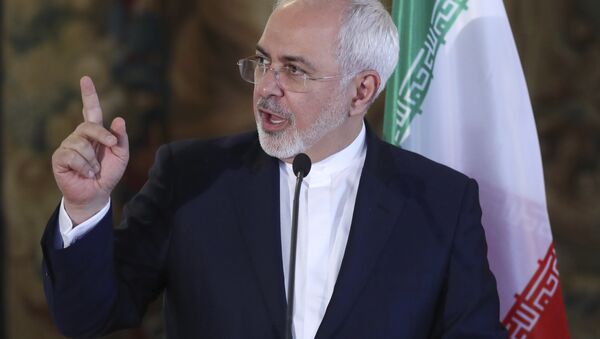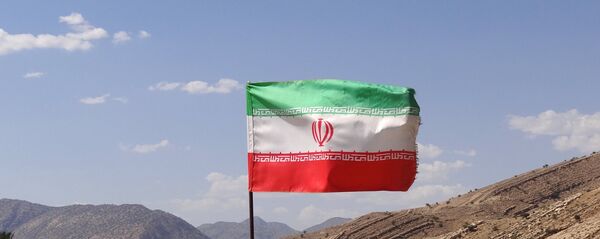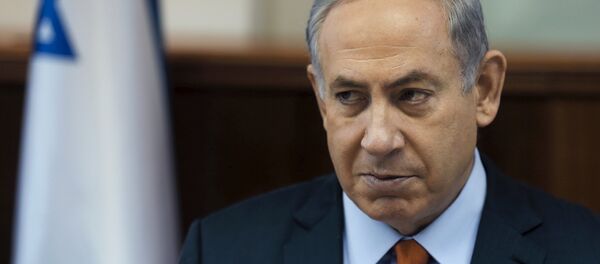Sputnik discussed the possible reasons Iran's top diplomat resigned, and how this could impact Tehran's internal and foreign policy, with Dr. Ali Bakeer, an Ankara-based political analyst specialising in Turkey's foreign policy, Iran and the Gulf Cooperation Council (GCC) countries.
Sputnik: What’s your impression of Zarif’s sudden resignation announcement?
Ali Bakeer: Many observers anticipated that Zarif might have to resign at a certain point but no one expected that his resignation would be announced on Instagram during the official visit of Syrian President Bashar al-Assad to Iran.
The direct reason for Zarif’s resignation is widely attributed to not informing his ministry of the visit and not allowing him personally to attend any of the official meetings, during which Assad met with Iran's Supreme Leader Ali Khamenei and President Hassan Rouhani.
READ MORE: Iran's President Hasn't Accepted Foreign Minister Zarif's Resignation Request
However, I think the resignation came after a long period of frustration and as a result of the contention between the political/diplomatic approach of Rouhani’s government towards regional issues on the one hand, and the security/IRGC approach which is usually endorsed by the Supreme Leader on the other.
There are couple of other theories which attribute the resignation to personal calculations, and to a supposed tactical manoeuvring by the Iranian government. Still, because of the closed nature of the Iranian system, one internal action can be interpreted in so many different —and even contradictory- ways, and you never get to know the right reason.
Despite this, the resignation has sent shockwaves to the Iranian public and the international community because he was a pretty active [cabinet] minister and helped to score major foreign policy achievements for Iran during his term as a foreign minister.
Sputnik: How likely is President Rouhani to accept this resignation, in your opinion?
However, whether Rouhani will accept his resignation or not will depend on several factors, such as: Did Zarif resign of his own will or he was forced to? Is it about Assad’s visit or a much more serious issue? Is it a bluff to improve the position of the government vis-à-vis those who are said to oppose the JCPOA, and to send messages to the EU on how close Iran is to withdrawing from the deal, or not?
At the end of the day, Rouhani’s government will be the sole loser if Zarif insists on his resignation; this is why the issue is still debatable.
Sputnik: What changes will this bring to Iran’s foreign policy? Could it become more hardline?
Ali Bakeer: Whenever we discuss such issues, we should always bear in mind that major and sensitive topics in Iran, especially those related to foreign policy and national security, are decided by the Supreme Leader, his team, and the institutions related to him.
In this manner, whether there will be a change in Iran’s foreign policy after Zarif’s resignation is actually related to the Supreme Leader. If it is decided that a confrontational policy with the West is requires in the coming period, then we will definitely see more hardline figures in key positions. If this is not the case, then I assume it is in the interest of the supreme leader to keep the so-called moderate in the front.
READ MORE: Zarif's Diplomacy Irritated Bolton, Pompeo, Netanyahu — Iranian Analyst
Having said that, the resignation of Zarif will complicate the issues more for Rouhani's government, which is under pressure for failing to deliver in many domestic issues. Moreover, Iran might lose the momentum in its foreign policy, particularly when it comes to Zarif’s personal achievements and his ability to keep the dialogue open with the Europeans on critical matters including the nuclear deal.
Sputnik: Could this move affect the future of the Iran nuclear deal and the situation in Syria and how?
Ali Bakeer: The debate regarding the future of the JCPOA and whether Iran will stick to it or decide to exit it, [has been] there for quite some time. Such decisions, in my opinion, are not directly related to a change in any executive position in the Iranian government and are subject to more complicated factors, with the supreme leader having the final say.
During the last few years, the economic and financial benefits of the nuclear deal were primarily utilised by the IRGC to support the country’s expansionist agenda in Syria, Iraq, Yemen, Lebanon and elsewhere in the Middle East rather than supporting the Iranian citizens amid the difficult economic situation. This situation is a part of a traditional contention between the government and other deciding institutions within the country.
Regarding the Syrian issue, as the war is winding down, Iran will have tough decisions to make, but it is very clear that its direct presence in the country is not welcomed by many local, regional, and international players, and there is a price to pay if the regime decides to stay there.
The views and opinions expressed in this article are solely those of the speaker and do not necessarily reflect those of Sputnik.






